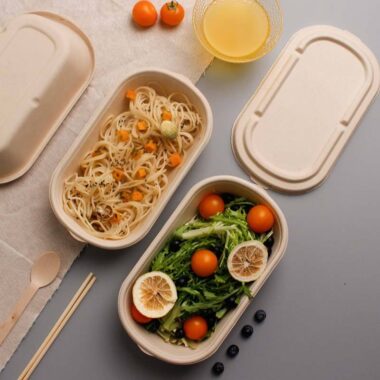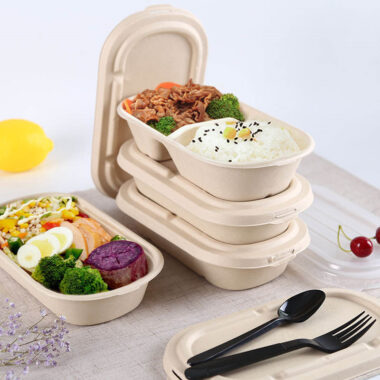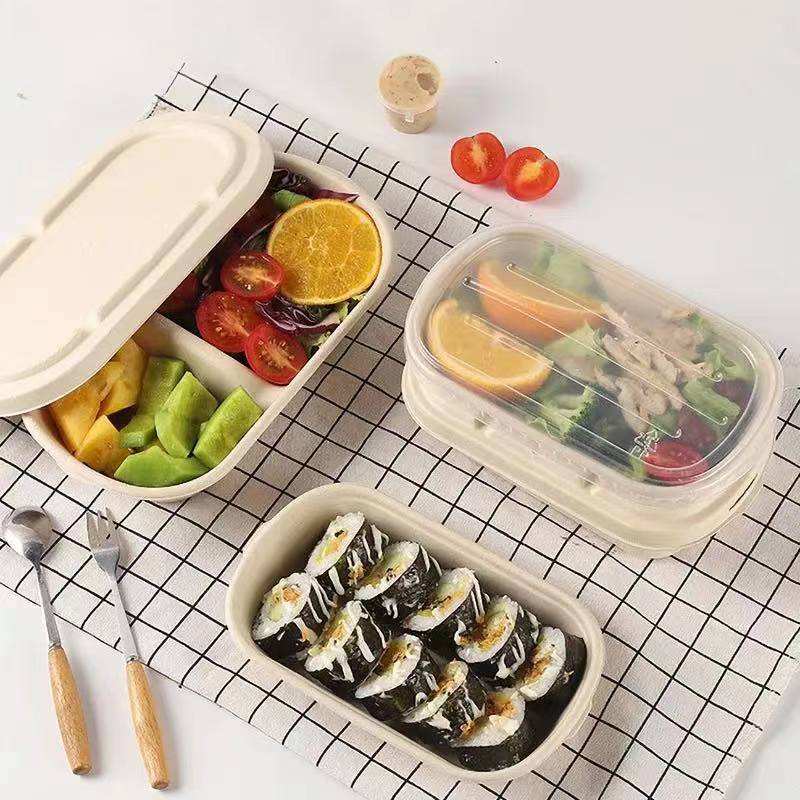🌿 Introduction: The Rise of Compostable Food Packaging
With governments restricting single-use plastics, compostable food containers have emerged as the next generation of sustainable packaging. Designed to decompose naturally into organic matter, these containers help restaurants, caterers, and brands meet eco-friendly goals while maintaining functionality and hygiene.
Working with a professional Food Container Manufacturer ensures your compostable packaging meets international compostability and food safety standards — from material sourcing to final certification.
🍃 1. What “Compostable” Really Means
A compostable container is one that breaks down completely in industrial composting conditions into carbon dioxide, water, and biomass, leaving no toxic residue. Unlike biodegradable materials, compostable products must meet strict time-bound decomposition standards (typically within 180 days).
Top standards include:
-
EN 13432 (EU) – Requires full disintegration under controlled composting within six months.
-
ASTM D6400 (USA) – Sets criteria for compostable plastics based on degradation and eco-toxicity.
-
BPI & TÜV OK Compost – Third-party certifications verifying real-world composting results.
🌾 2. Common Eco-Friendly Materials Used
Compostable containers can be made from several renewable resources:
-
PLA (Polylactic Acid) – Derived from corn starch, ideal for cold foods, salads, and beverages.
-
CPLA (Crystallized PLA) – Modified for heat resistance up to 120°C, suitable for hot meals.
-
Bagasse (Sugarcane Fiber) – Naturally heat-resistant, oil-proof, and suitable for both hot and cold dishes.
-
Kraft Paper & Cornstarch Blends – Provide a natural look while remaining compostable and customizable.
These materials are PFAS-free and safe for food contact, offering excellent sustainability without compromising usability.
🔍 3. Key Standards Every Supplier Should Follow
When sourcing from a reliable Compostable Food Containers Manufacturer, check for the following compliance marks and systems:
-
Material Testing Reports verifying biodegradation and heavy metal absence.
-
Food Contact Safety Certificates (FDA, LFGB, EC 1935/2004).
-
Carbon Footprint or LCA Data proving reduced environmental impact.
-
Supply Chain Transparency including raw material traceability and waste management policies.
Certified suppliers operate under international quality frameworks such as ISO9001 and BRC Packaging, ensuring stable and consistent production quality.
🌍 4. Advantages for Takeaway and Catering Brands
Compostable containers not only protect the planet but also strengthen brand reputation. For B2B buyers, the advantages include:
-
Eco-Compliance: Meet EPR and plastic-ban policies in the EU, UK, and North America.
-
Customer Appeal: Align with eco-conscious consumers seeking sustainable dining options.
-
Safe Performance: PFAS-free coatings prevent oil and moisture leaks while remaining microwave-safe.
-
Versatility: Available in multiple shapes and capacities, ideal for salads, hot dishes, desserts, and beverages.
🛠️ 5. Customization for Brand Impact
Manufacturers now offer tailored options that combine sustainability with visual identity:
-
Embossed or printed logos using soy-based inks.
-
Custom shapes and lid fits for unique food presentations.
-
Biodegradable film windows for product visibility.
Partnering with a trusted compostable food container supplier allows brands to merge functionality, compliance, and design in one eco-friendly solution.
✅ Conclusion
Compostable food containers represent the future of responsible food packaging. With global demand for sustainable alternatives rising, working with a certified Food Container Manufacturer ensures your brand meets modern environmental expectations while maintaining product quality and safety.
By choosing reliable materials such as PLA, bagasse, and CPLA — and verifying compostability standards — your business contributes to a cleaner, greener planet without sacrificing convenience or performance.




















